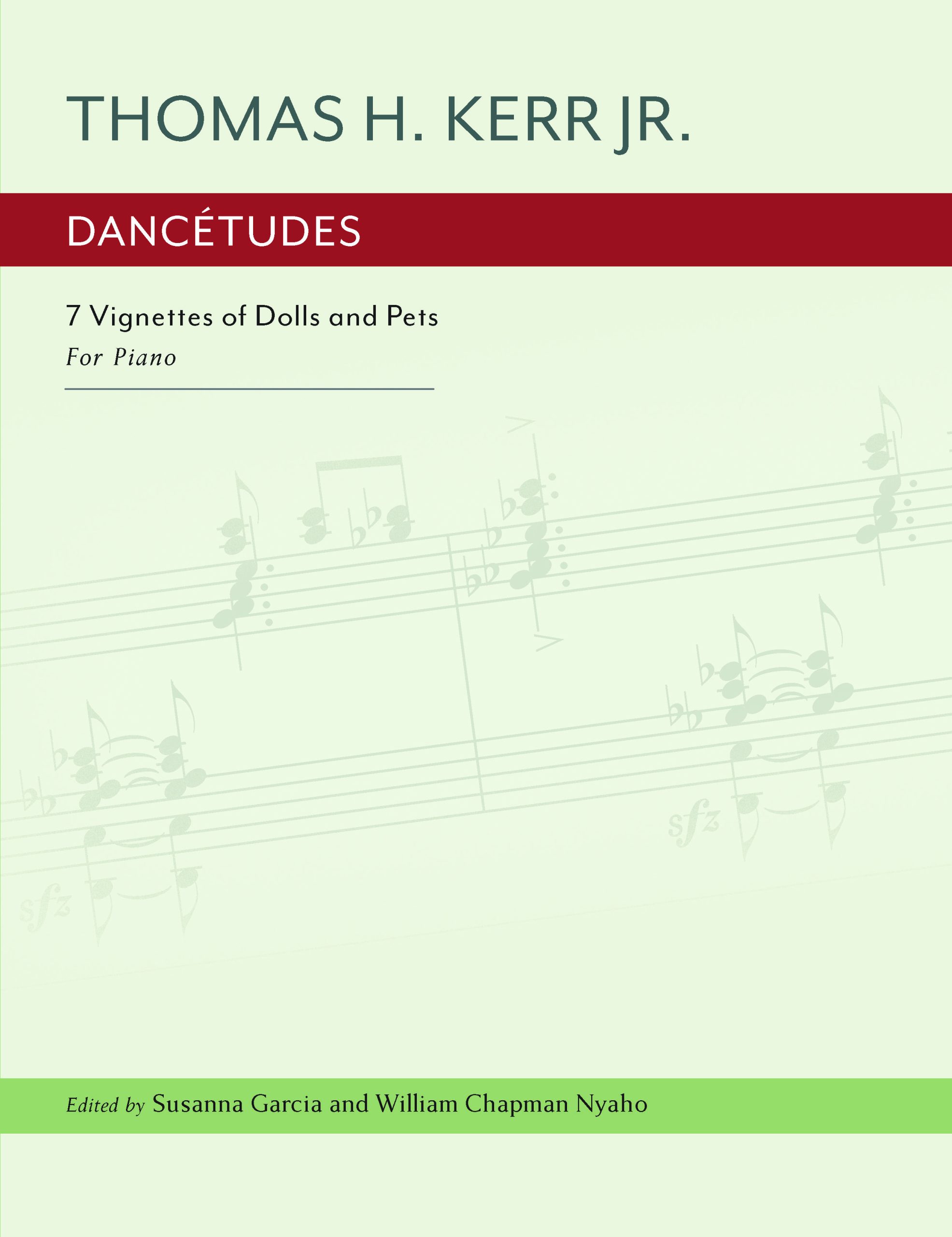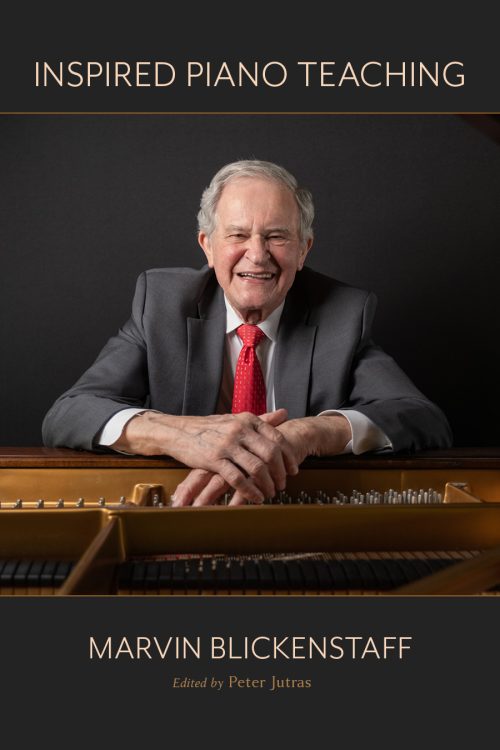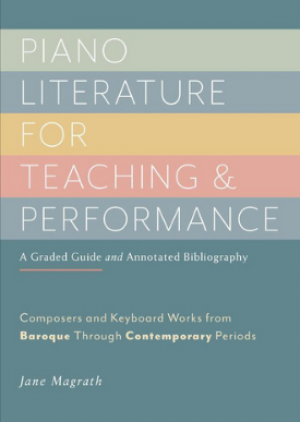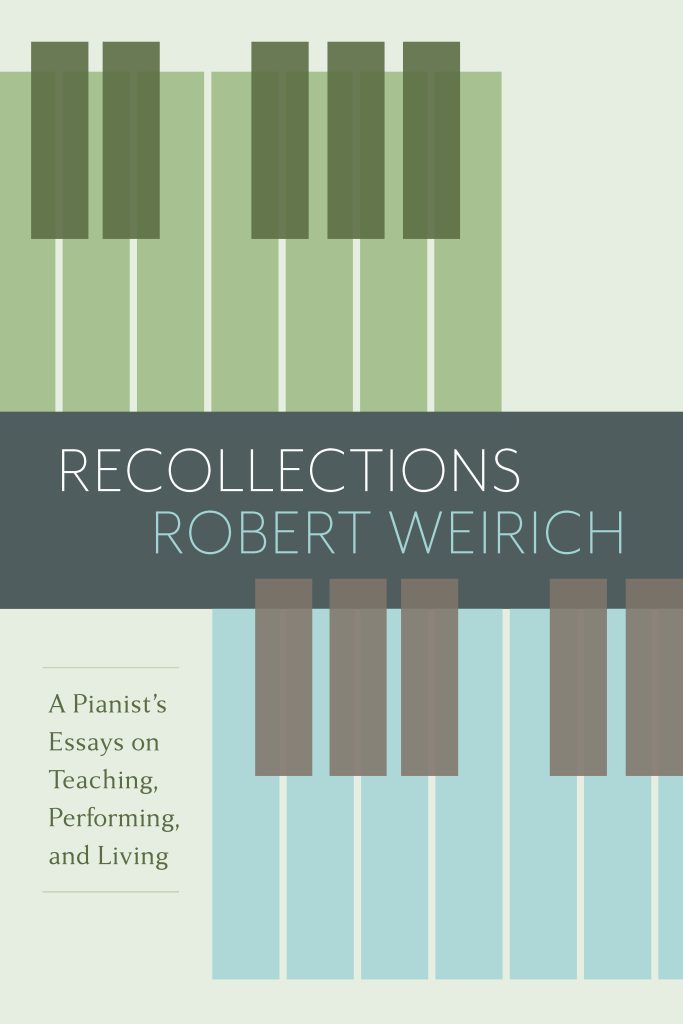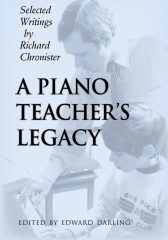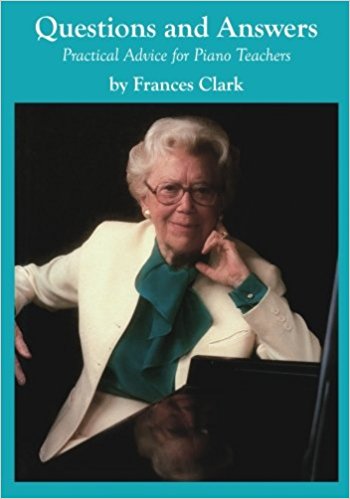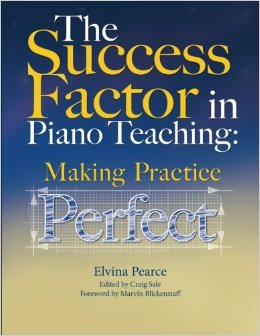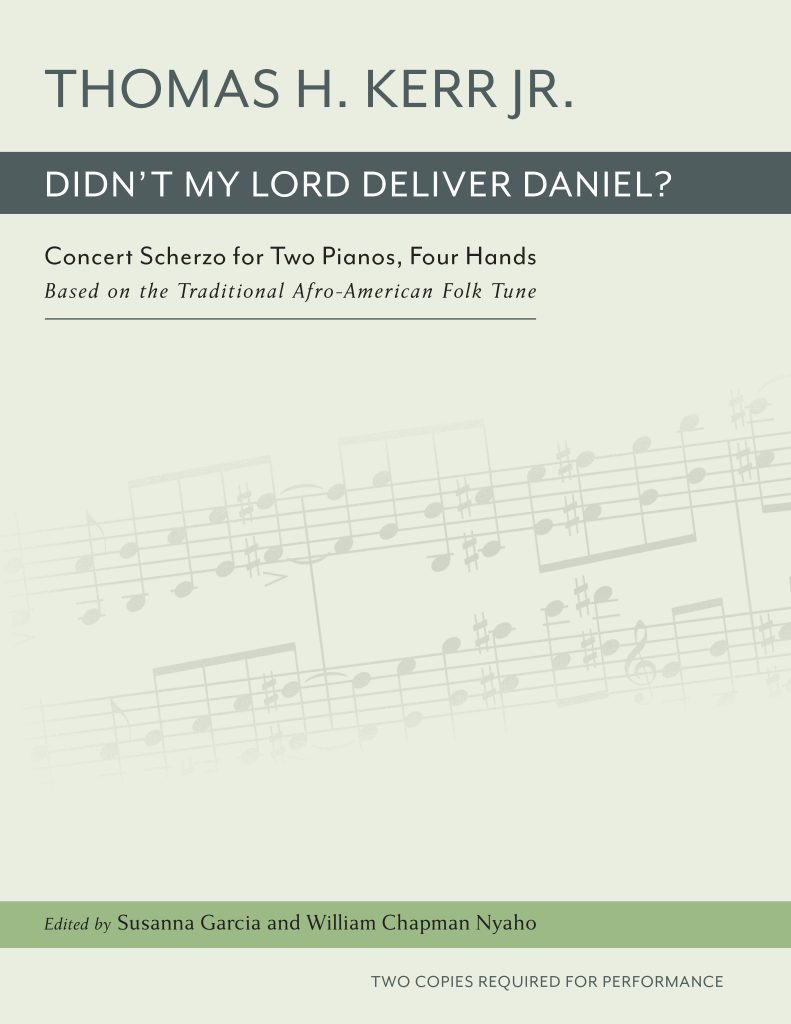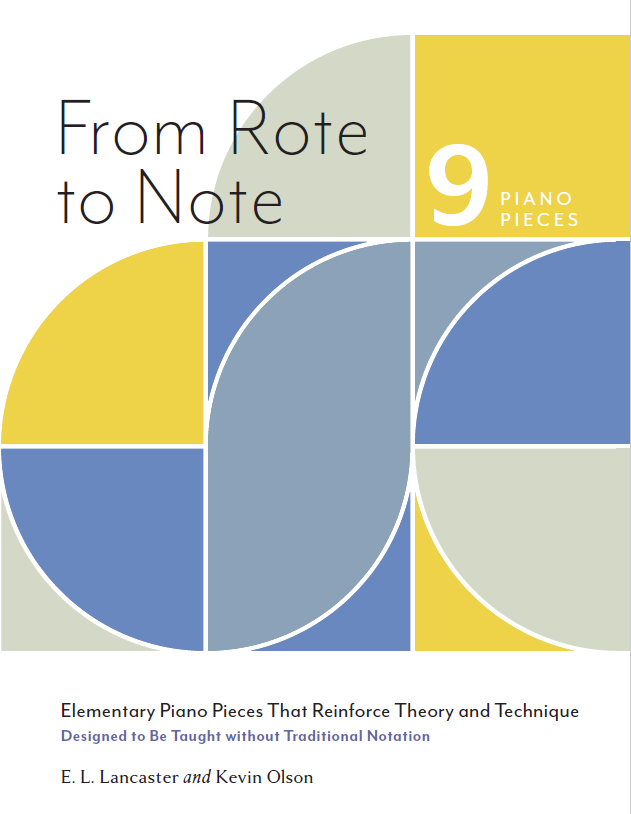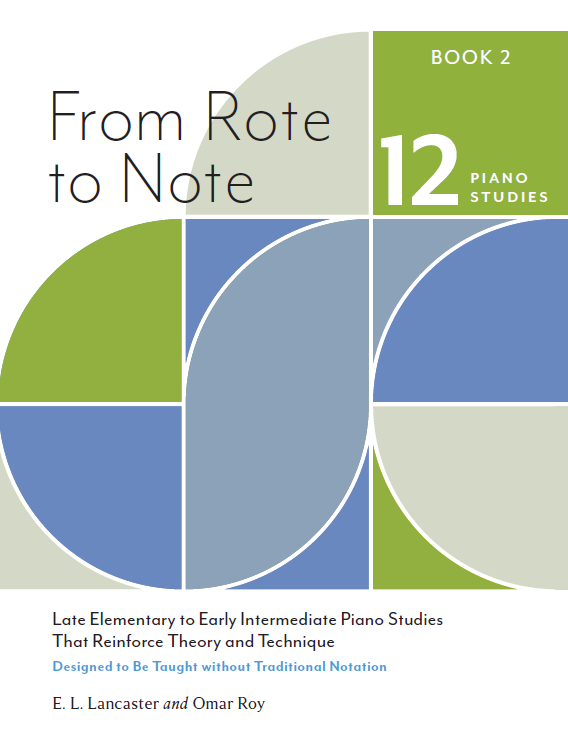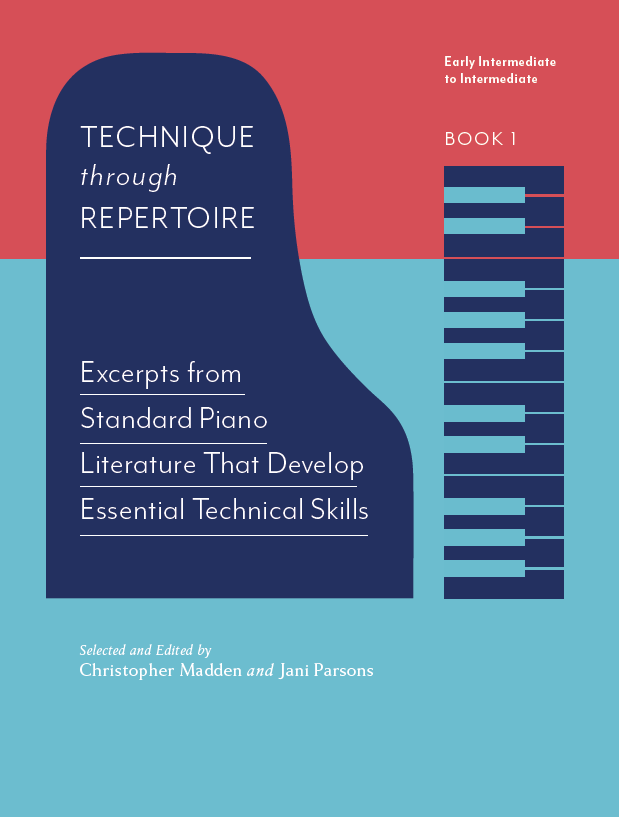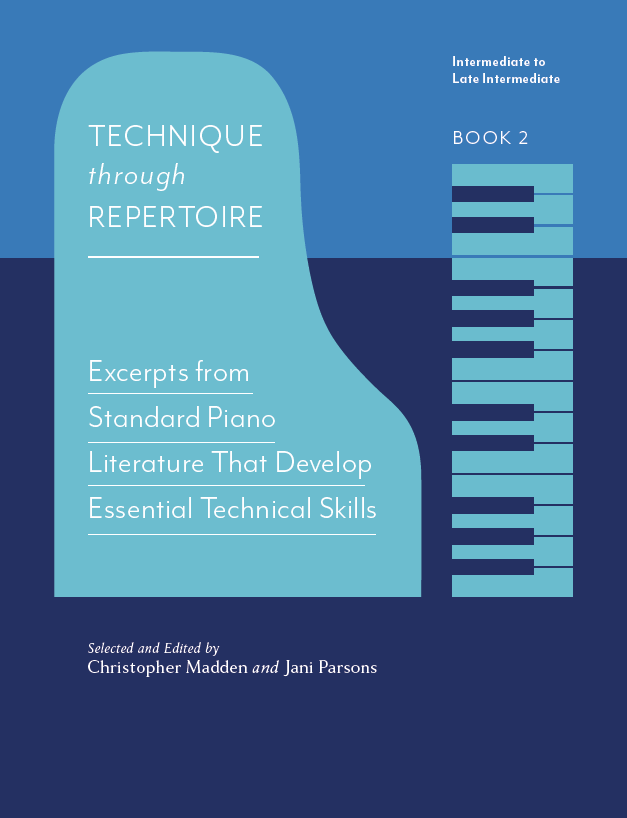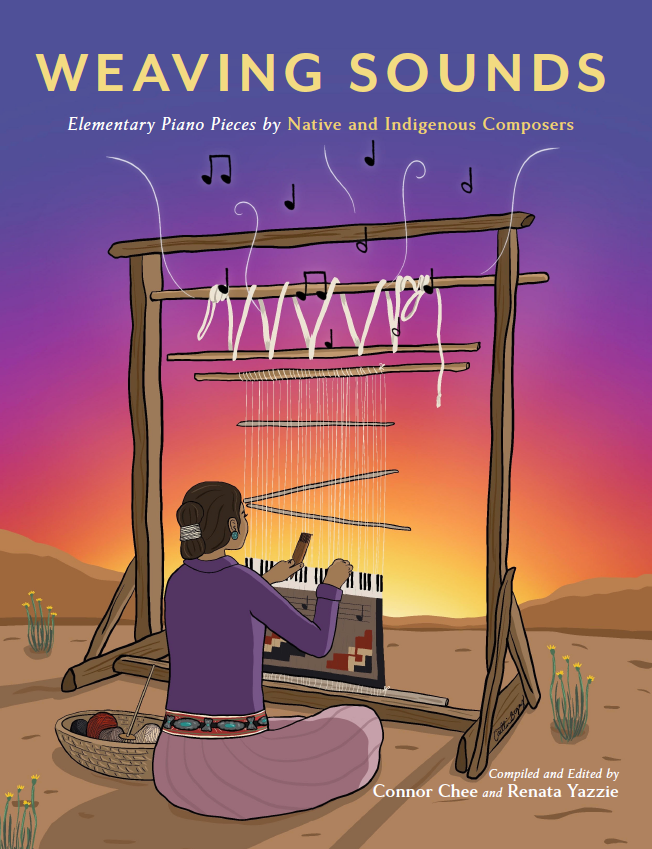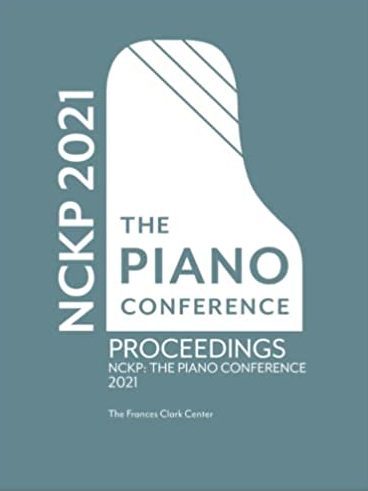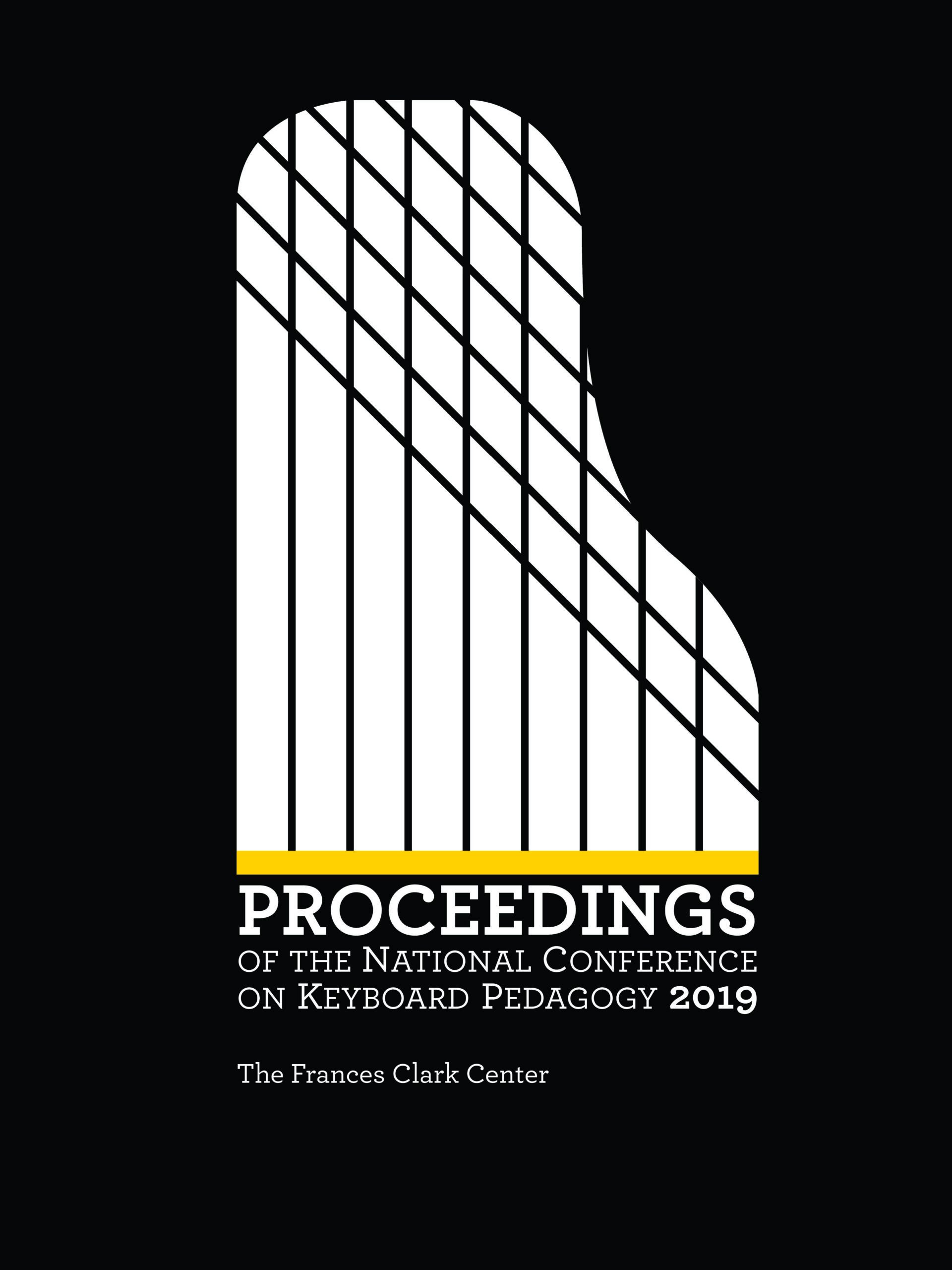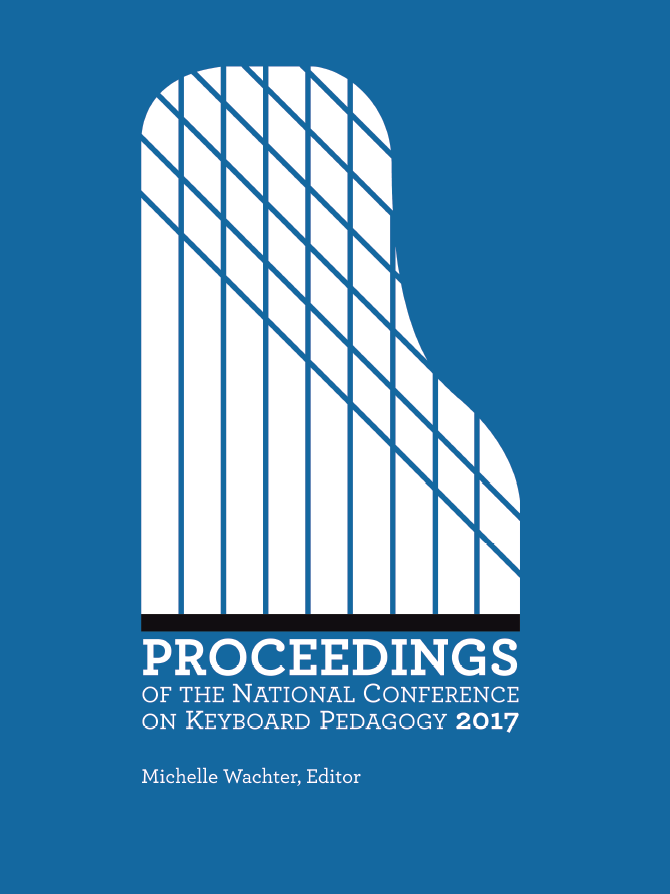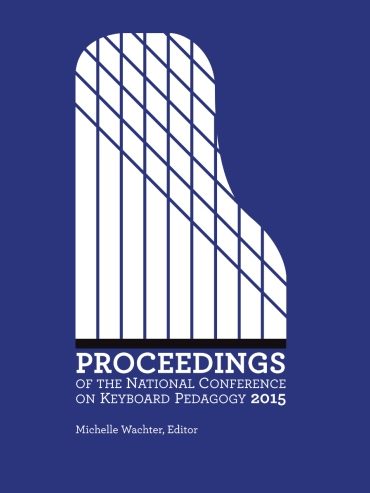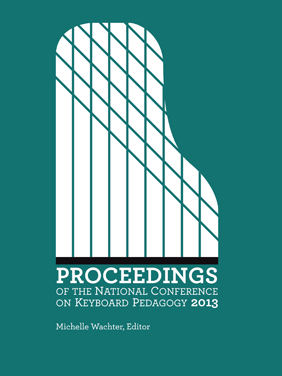
Publications
Piano Education Press
Piano Education Press is a division of the Frances Clark Center, a not-for-profit educational organization 501(c)(3) that serves the advancement of piano teaching, learning, and performing through highest quality resources and programs.
Mission
The mission of the Center is to amplify the transformative power of music making in the life of every person regardless of age or ability through research, development and codification of successful practices, and the curation and dissemination of publications, courses, seminars, and conferences.
- Offer books at a variety of levels to meet the needs of a wide range of students.
- Provide resources that enhance the experience of participants in the webinars and courses developed by the Center.
- Publish books that further learning in areas where materials are not readily available from other sources.
- Enrich and diversify the piano teaching curriculum.
Featured
NEW! Easter Monday Swagger
By Thomas H. Kerr Jr., edited by Susanna Garcia and William Chapman Nyaho
Scherzino, Easter Monday Swagger (1970) is a solo piano work by Thomas Henderson Kerr Jr. Subtitled A Fantasy “Romp” on Walk Together, Children, it offers contrasting interpretations of this African American spiritual, blending playful energy with moments of depth and reflection.
Kerr employs imitation, call-and-response, and improvisation, reflecting the performance traditions of the spiritual. By blending these elements into a fantasy-a genre of piano composition known for expressive freedom, improvisatory character, harmonic experimentation, and virtuosity-he creates a distinctive synthesis of African American and European classical elements.
NEW! Dancétudes
By Thomas H. Kerr Jr., edited by Susanna Garcia and William Chapman Nyaho
Dancétudes: 7 Vignettes of Dolls and Pets is a set of seven programmatic piano solos by Thomas Henderson Kerr Jr., composed for his young daughter. Dedicated to her dolls and pets, these pieces develop technical proficiency, familiarity with contemporary idioms, and expressive artistry.
Kerr described the title as “a combination of the words ‘dance’ and ‘étude,’” explaining that he wrote them to encourage his daughter’s interest in playing. Spanning late intermediate to early advanced levels, the études explore twentieth-century styles—including impressionism, postimpressionism, modernism, and jazz—each highlighting a specific technique or musical idiom.
Dancétudes serves as a bridge to advanced impressionist and modernist works, and to works in the jazz idiom.
Reference Publications
Marvin Blickenstaff
$49.99
Inspired Piano Teaching is filled with practical advice on teaching students at all levels. It is dedicated to keeping inspiration and artistry alive for every student in every lesson. Topics range from proactive…
Jane Magrath
$59.99
Piano Literature for Teaching and Performance is a resource for teachers, students, and performers. It features works from the Baroque through Contemporary periods; listings from underrepresented…
Robert Weirich
$39.99
Recollections: A Pianist’s Essays on Teaching, Performing, and Living gathers dozens of articles Robert Weirich wrote for various music journals, including Clavier, over the last four decades. The essays…
Legacy Publications
Edited by Edward Darling
$35.00
Richard Chronister was one of the pedagogy greats of his time. During the last forty years of the 20th century, he was a driving force for better piano teaching and better training of piano teachers…
Frances Clark
$35.00
For over 26 years, piano teachers relied on Frances Clark’s column in Clavier magazine for insightful, inspiring answers to their questions. Some of her best advice on subjects ranging from repertoire to…
Elvina Pearce
$35.00
This definitive volume contains a unique combination of encyclopedic knowledge and down-to-earth ideas that can help every piano teacher achieve extraordinary results in teaching, practicing, and…
Repertoire & Student Publications
Thomas H. Kerr Jr.
$19.99
Didn’t My Lord Deliver Daniel?: Concert Scherzo for Two Pianos, Four Hands is a set of six variations and a coda based on the Negro spiritual. Composed in 1940 by pianist and composer Thomas…
Thomas H. Kerr Jr.
$34.99
Dancétudes: 7 Vignettes of Dolls and Pets is a set of seven programmatic piano solos by Thomas Henderson Kerr Jr., composed for his young daughter. Dedicated to her dolls and pets, these…
Thomas H. Kerr Jr.
$19.99
Scherzino, Easter Monday Swagger (1970) is a solo piano work by Thomas Henderson Kerr Jr. Subtitled A Fantasy “Romp” on Walk Together, Children, it offers contrasting…
E.L. Lancaster and Kevin Olson
$11.99
From Rote to Note: Elementary Piano Pieces that Reinforce Theory and Technique contains nine pieces based on a theoretical or technical concept that students encounter at beginning levels…
E.L. Lancaster and Omar Roy
$15.99
From Rote to Note, Book 2: Late Elementary to Early Intermediate Piano Studies that Reinforce Theory and Technique contains twelve piano studies based on a theoretical or technical…
Christopher Madden and Jani Parsons
$11.99
Technique through Repertoire helps students develop essential technical skills by studying short excerpts from standard piano literature. This two-volume collection contains nearly 150 excerpts designed…
Christopher Madden and Jani Parsons
$13.99
Technique through Repertoire helps students develop essential technical skills by studying short excerpts from standard piano literature. This two-volume collection contains nearly 150 excerpts designed…
Connor Chee and Renata Yazzie
$16.99
Weaving Sounds is a collection of beginner piano repertoire written by the vibrant and diverse voices of Native and Indigenous composers from the Diné, Mohawk, Anishinaabe, Cree, Blackfoot…
Proceedings of Past National Conference on Keyboard Pedagogy
Every two years, members from across all areas of the music profession convene at the National Conference on Keyboard Pedagogy for several intensive days of learning, inspiration, and collegiality. This publication documents this extraordinary event. You will find full transcripts of keynote addresses, PEDx sessions, conference workshops, and plenary sessions. Also included are reports of pre-conference seminars, as well as abstracts of research poster and pre-conference technology sessions. We hope that you find the Proceedings a resource to which you will return to repeatedly in the future, and we hope to see you at future meetings of the National Conference on Keyboard Pedagogy.
Piano Pedagogy Forum
A publication featuring articles by students and young professionals.
Inclusive Piano Teaching Blog
-
This is What Diversity Sounds Like
In her book Hidden Figures (the basis for the 2016 movie of the same name), Margot Lee Shetterly observed, “The electrified fence of segregation and the centuries of shocks it delivered so effectively circumscribed the lives of American blacks that even after the current was turned off, the idea of climbing the fence inspired dread.” Florence Price, a child prodigy…
-
Perspectives: Why I Love Teaching Learning-Challenged Children
As a piano teacher, I love working with students who catch on to new concepts quickly, who are respectful and obedient, who are able to give polished performances, and who progress rapidly. Yet, over my two-and-a-half decades of teaching piano lessons, I feel my biggest success stories are students who did not do any of…
-
Is Teaching Really That Different in Asia?
“East is East, and West is West, and never the twain shall meet” may have held some truth in 1889, when Rudyard Kipling wrote the poem The Ballad of East and West, but the phrase has little relevance in 2012. World-wide communication, increased travel, and global industry have made our planet avery small place. So it’s good to have an article…
-
Need Info? We’ve Got It!
Dr. Scott Price There is a growing abundance of high-quality information on teaching special learners, but it is often difficult to find it referenced in one place. The following list of books, articles, webinars, and online resources is intended to be a starting point for those of us teaching and learning from special learners, and for…
-
Inclusive Piano Teaching at The National Conference on Keyboard Pedagogy!
Dr. Melissa Martiros Registrations are open for the 2019 National Conference on Keyboard Pedagogy, to be held July 24-27 in Lombard, IL. This conference program can be found on the NCKP 2019 website and will feature many helpful sessions related to Inclusive Piano Teachingthat will include workshops, teaching demonstrations, and panel discussions. We would like highlight some…
-
Preventing and Managing Challenging Behavior Part II: When Small Things Become Big Things
Dr. Melissa Martiros and Mrs. Michelle Bastien Small Successes can be BIG Successes! Last Fall, I began working with a youngster who faces big learning challenges at the piano, the result of his inability to self-regulate external stimulation. His senses are heightened—because of this, any input from the outside world puts him in a frenzy.…
-
Repertoire Choices for Students with Autism
Dr. Scott Price Enjoy a guest blog post that Dr. Scott Price authored for Alfred Music: One of the most frequent topics teachers ask about during my workshops and lectures on teaching students with autism centers on which pieces I use with my students. This is an excellent question and I usually frame my answer…
-
Finger Numbers (not finger knots!)
Dr. Scott Price Numbers seem integral to music study, but they can be very problematic for our students with special needs. We use numbers to assist us in our process, but meter and rhythm are beat units that are heard and felt. Our fingers are all different shapes and lengths, and we use them in…
-
Preventing and Managing Challenging Behavior: Part I
Dr. Melissa Martiros and Mrs. Michelle Bastien, Guest Blogger Follow-up from The National Conference on Keyboard Pedagogy Several years ago, I worked in-home with an adolescent boy who had a tough time staying seated. And by tough I mean every three minutes he bolted off of the bench. And by bolted I mean he ran…
-
Vocabulary Effectiveness for Students with Special Needs
Dr. Scott Price Our use of vocabulary when teaching our students with special needs can be a confusing thing on both sides of the piano bench. Why? – a good question fraught with challenges. When teaching a traditional neuro-typical student, we assume that they possess a vocabulary. We expect that they know the basic words…
-
Teaching Reading, Part III: Tools for Teaching Reading
Dr. Beth Bauer As mentioned in the previous posts on teaching reading, our students come to us with various labels or diagnoses. However, one student with the label of autism or Down syndrome is just that. One person with the label. As piano teachers, we all have training in piano pedagogy. As teachers of students…
-
Teaching Reading, Part II: Framing Instruction
Scott Price Students with disabilities will come to your studio with all sorts of labels – autism, high/low functioning, visual impairment, ADD/ADHD, Down syndrome, etc. Although they come with labels, the label does not define the person – it informs the pedagogy. The student is a person capable of learning and doing remarkable things. The…
-
Teaching Reading, Part I
Dr. Melissa Martiros This blog post will be part one of a three-part series focused on teaching reading to students with special needs. As with all of our posts, we invite you to implement what you find useful, disregard what you do not, and email us with any questions you have along the way. Please…
-
Sessions on Special Needs at NCKP 2017!
Dr. Melissa Martiros Registrations are now open for the 2017 National Conference on Keyboard Pedagogy, scheduled for July 26-29 in Lombard, IL (a suburb of Chicago). This year’s conference will feature many helpful and engaging sessions related to inclusive piano teaching. The conference program may be found on the NCKP website. We would like to highlight some of…
-
Teaching Students with Visual Impairments – Empathy and Facilitation
Dr. Scott Price Welcome back to the Inclusive Piano Teaching blog. Today’s entry is part two of a discussion on teaching students with visual impairments. I would like talk briefly about some things to think about when bringing a student into the piano studio. Some of these things may sound redundant, but can have a…
-
Teaching Students with Visual Impairments – Resources
Dr. Scott Price Welcome back to the Inclusive Piano Teaching blog. After a brief rest, we are back sharing information and resources with all of you. Today’s post will include information on where to find resources for teaching students with visual impairments. This group of students includes students who are blind and those with partial…
-
Recital Preparation and Performance
Dr. Beth Bauer ‘Tis the season for recitals. To prepare our studios for the recital, it is common to pick the date and venue, decide on the type of recital (duet, theme, holiday), plan the reception, and pick repertoire for our students. Many of these same things occur when preparing for a recital with our…
-
Studio Environment – Some Keys to Success
Dr. Scott Price Studio environment can play an important role in the success of our students with special needs. We don’t tend to think of the studio as being more than a tool in the lesson, but the actual environment and the objects present can sometimes be the deciding factors in the success or failure…
-
Labels
Dr. Melissa Martiros Several years ago, I received a memorable email from a parent on a quest to find a piano teacher for her son, Adam. Prior to reading the text of the email, I opened up the attached document and viewed a scanned image of her son’s school photo. As I read through her…
-
Person-First Language
Dr. Beth Bauer When our students walk into our studios for lessons, we often ask them how was their week, are they doing anything fun this week, or ask about something they told as at their previous lesson. Regardless of who the student is or what he or she told us, that person is a…
-
Meet the Authors of the Inclusive Piano Teaching Blog III
Dr. Melissa Martiros Melissa Martiros currently holds the position of Assistant Professor and Program Coordinator of Music at Martin Methodist College in Pulaski, TN where she is also serves as the Director of the CWN Community Arts Academy, a pre-college program she founded in 2015. Prior to her appointment at Martin Methodist College, she served…
-
Meet the Authors of the Inclusive Piano Teaching Blog II
Dr. Beth A. Bauer, NCTM Dr. Beth A. Bauer received her doctorate of music education from the Indiana University Jacobs School of Music. Her dissertation is titled “What is an appropriate approach to piano instruction for students with Down syndrome?” Additional degree work includes a Master of Music from Northern Illinois University where she studied with…
-
Meet the Authors of the Inclusive Piano Teaching Blog!
The next three postings will introduce you to the three authors who will be sharing their expertise. First up, Dr. Scott Price from the University of South Carolina. Dr. Scott Price is the founder and instructor of the Carolina LifeSong Initiative that is dedicated to providing piano lesson and music experiences (including improvisation and music…
-
Welcome to the Inclusive Piano Teaching Blog
Welcome to the Inclusive Piano Teaching Blog sponsored by The Frances Clark Center for Keyboard Pedagogy. We hope you will join us in the coming months as we share information on teaching learners of all abilities. Check back often for new content! What is the blog? The Inclusive Piano Teaching blog is designed to bring…

